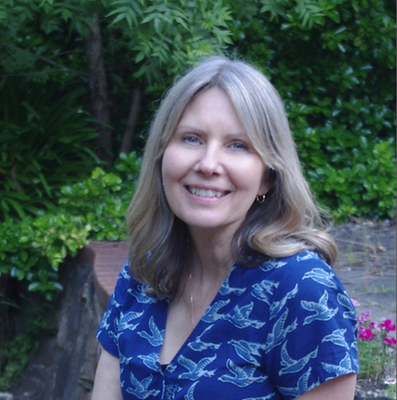Author Interview — THE POWER OF VERSE: Sharon Kernot
Novel Insight on 12th Feb 2024
In her new verse novel, Birdy, Sharon Kernot skilfully navigates the challenges of writing about consent, loss, and hope during the aftermath of atomic tests.
What do you love about writing verse novels?
I love the brevity and compression of working with verse. You can say so much in so few words. I love the fact that verse novels allow for experimentation and there’s a multitude of poetic elements you can use if you choose to. I also love the fragmentation, the white space, the gaps between the poems and that sense of leaping from one scene to another. I just find writing in verse such an interesting and challenging form to work in. The other thing I like is that poetry can convey a lot of emotion in a very short space and can be used to explore difficult and confronting subjects and experiences in a way that is not overly confronting or overwhelming.
What inspired you to write Birdy?
After completing The Art of Taxidermy, I knew I wanted to write another novel in verse because I enjoyed the process so much. I had in mind that the novel would be set somewhere in the Flinders Rangers because the landscape is so evocative. I was working in child protection and mental health roles at the time with clients who had experienced loss and trauma and some of these issue and stories fed into the work and led to the creation of the characters. The Maralinga connection relates to my own family background and is something I’ve wanted to write about for a long time. Also at the time of writing, the #MeToo movement was very much in the news and issues of consent were being discussed and debated across social media platforms. Later, the pandemic began and that sense of isolation also filtered into the story.
Did you have any personal experiences that contributed to this new book?
Yes, there are a few. My grandfather worked at Maralinga during the atomic tests and so this became part of Alice and Birdy’s backstory. Maddy’s selective mutism is partially informed by my experience of working with clients in mental health, but also from my own experience of feeling incredibly inarticulate and highly anxious at times. And then there was the disappearance of my own daughter, which contributed in some small way. She went missing one afternoon many years ago. It was just for a few hours but long enough to initiate a police search. It was a terrifying experience - one that I’ll never forget.
Your collection of published works explores difficult themes of grief, separation, loss, shame, revenge, poverty, addiction, and more. What challenges come with writing about these themes?
The main challenge I suppose is for the writing to remain engaging without it becoming too weighty, too heavy, especially when writing for young people. I think verse is perfect for this as I touched on above. You can explore very difficult subject matter and convey a lot of emotion with poetry without it being overwhelming. And to ensure that the work is not too dark, I like to include moments of joy and beauty that show how small things can lift us up and provide happiness or respite even during our most challenging times.
What themes did Birdy explore that were new to you?
I haven’t explored issues of consent in the past, nor how this can be complicated through social media channels. So that was new. I touched very briefly on the theme of missing children in my debut novel, Underground Road, but this is the first time I’ve explored it in detail from the perspective of a mother who’s been waiting for many years for her missing daughter to come home. This, in some ways was inspired by the Beaumont children whose parents died recently without ever finding out what happened to them. Such a terrible tragedy. Other aspects of the book that I hadn’t explored before are hoarding and clutter, which can be symptoms of grief and loss, and also the impact of the atomic tests on veterans, Aboriginal people, animals and the environment.
How did the writing process of this book compare to your previous books?
They’re all quite different, I think. The Art of Taxidermy seemed to flow effortlessly. Mostly, I would think of poems when I was out walking and so the landscape, the birds and animals were very much a part of the writing process. With Birdy, I often had long stretches of time when I couldn’t work on the novel because I had to focus on my day job, and so it took longer to write. There were also periods of isolation due to writing later drafts during the pandemic, so that sense of being disconnected from the world fed into the narrative. Initially, I had written the first draft from both Birdy and Maddy’s perspectives but this was changed in subsequent drafts, which I think works better. So, I suppose this book took a little longer to complete and also longer for me to find the voice of Maddy, the main character. But perhaps that’s appropriate given the subject matter.
What do you hope your readers will take away from Birdy?
I hope they feel heartened by Maddy’s story. I hope they will see that we all struggle, sometimes with incredibly difficult emotions and experiences, but there are always ways forward and there is joy, beauty, friendship and hope to be found in the most unexpected places.
Do you have any other projects in the works?
Yes, I have a couple of things on the go. I’m in the process of writing a verse novel for adults, a dark psychological thriller, which is something quite different for me – but a lot of fun. I’m also working on a new YA verse novel that explores body image and the impact of social media.

